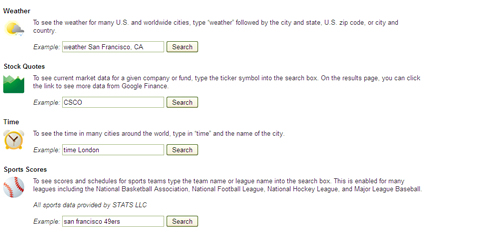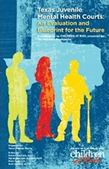We're pleased to announce that Mary Camp, director of the Texas Legislative Reference Library, was recently elected chair of the Research Librarians Section of the National Conference of State Legislatures (NCSL).
Composed primarily of librarians and information specialists in legislative agencies nationwide, the group provides a forum for the exchange of ideas relating to legislative research and library management. The section sponsors an extensive schedule of programs at the NCSL Legislative Summit each year as well as an annual professional development seminar. Both focus on current developments in information management, technology and legislative information. In addition, the group each year presents Notable Documents awards to recognize excellence in publications that explore topics of interest to legislators and staff and that use innovative techniques in formatting and presentation. The Texas Legislative Reference Library was recently honored with two Notable Document awards for its Texas Water Law Timeline and Texas Legislators: Past & Present database.
Mary replaces Shelley Day of the Utah Legislative Research Library. The new chair-elect is Eddie Weeks of the Tennessee Legislative Library and the new secretary is Sabah Eltareb of the California Research Bureau. Congratulations to all.
Week in Review, August 25th
Aug 25
- Consider the state of America's children. (Children's Defense Fund, 2011)
- Note the effects of recession on public transportation. (American Public Transportation Association, August 2011)
- See how much financial aid makes postsecondary education accessible. (Council of State Governments, August 16, 2011)
- Check out 2010 Census data related to schools. (The New York Times, August 19, 2011)
- Find government assets for sale in one place. (Federal Assets Sales Program, 2011)
Week in Review, August 18th
Aug 18
- See how individual health insurance premiums vary around the nation. (Kaiser Family Foundation, August 9, 2011)
- Consider the health risks of bicycling in urban environs, when compared to car use. (British Medical Journal, August 4, 2011)
- Read about sustaining economic growth after a recession. (Congressional Research Service, July 18, 2011)
- Note that Congress may face a deadlock over transportation funding. (Stateline, August 17, 2011)
- Review the inequities of school funding. (Center for American Progress, August 2011)
Getting The Most From Google
Aug 15
You can find almost anything in Google, but have you ever wondered if you're searching in the most efficient way? If so, take a look at some of the tips and shortcuts explained in the links below. Google can do amazing things in one click, like find population and unemployment rates, define any word or phrase, or even help you track the status of arriving or departing U.S. flights. It also has the capacity to handle precise word searching, allowing you to narrow your search results and save time. For learning these tips and tricks, we liked the three websites below, however additional information can be found by visiting Google's Inside Search Features page.
Google Search Features: Learn about the different types of information you can find in one click, as well as more advanced search techniques like searching on the synonym of your search term, or using the plus (+) operator.

Basic Search Help: This page contains general recommendations for getting the best out of your Google search. Among other things, the folks at Google suggest keeping your search simple by using as few terms as possible and by using highly descriptive (unique) words.
Week in Review, August 11th
Aug 11
- Consider the state of the Gulf Coast. (National Oceanic and Atmospheric Administration, July 14, 2011)
- Find state laws relating to immigration enacted between January and June 2011. (National Conference of State Legislatures, August 9, 2011)
- Check out a profile of teachers in the U.S. (National Center for Education Information, 2011)
- Read about a Texas law designed to keep college students on four-year path. (Stateline, August 10, 2011)
 |
One of the library's recent acquisitions, a report published by the Houston nonpartisan advocacy group Children at Risk, takes an in-depth look at Texas' new juvenile mental health courts. These specialty courts are designed to aid juvenile offenders who suffer from mental illness. Their focus is on treatment and rehabilitation rather than incarceration. The report, Texas Juvenile Mental Health Courts: An Evaluation and Blueprint for the Future, begins with a concise overview of these specialized systems. It then focuses on four major courts in Austin, El Paso, Harris County, and San Antonio. For each court, the researchers describe the process juvenile offenders go through, the services the court offers, and the potential outcomes of a case. They also provide demographic and offense statistics. Finally, each court is evaluated on success rates and cost-effectiveness. Individual case histories are included throughout this section, adding a personal touch to the numbers. The report's second section lays out a "blueprint for the future." After a brief overview of the advantages of juvenile mental health courts, the authors offer specific, detailed guidance to policymakers and local leaders who are considering establishing these courts in their communities. The discussion takes readers step-by-step through the process of setting up a mental health court system and is punctuated with real-world examples from the courts described in section one. The authors conclude with policy recommendations from various stakeholders and Children at Risk itself. These recommendations address funding, staffing, and evaluation concerns. Along with the rest of the report, they provide a good starting point for those interested in learning more about this new breed of specialty court. |
- Read about how local governments are outsourcing services, including public libraries, to save money. (Stateline, August 1, 2011)
- Find a list of cell phone and texting laws by state. (Kaiser Family Foundation, July 2011)
- Review recent regulatory action affecting oil and gas air pollution standards. (Environmental Protection Agency, July 28, 2011)
- Use a chart to compare recessions and recoveries over the decades. (Federal Reserve Bank of Minneapolis, 2011)
- Consider the impact of the Budget Control Act (debt ceiling agreement). (Congressional Budget Office, August 1, 2011)
|
82nd R.S.
|
1
|
The constitutional amendment authorizing the legislature to provide for an exemption from ad valorem taxation of all or part of the market value of the residence homestead of the surviving spouse of a 100 percent or totally disabled veteran.
|
|
|
|
82nd R.S.
|
2
|
The constitutional amendment providing for the issuance of additional general obligation bonds by the Texas Water Development Board in an amount not to exceed $6 billion at any time outstanding.
|
|
|
|
82nd R.S.
|
3
|
The constitutional amendment providing for the issuance of general obligation bonds of the State of Texas to finance educational loans to students.
|
|
|
|
82nd R.S.
|
4
|
The constitutional amendment authorizing the legislature to permit a county to issue bonds or notes to finance the development or redevelopment of an unproductive, underdeveloped, or blighted area and to pledge for repayment of the bonds or notes increases in ad valorem taxes imposed by the county on property in the area. The amendment does not provide authority for increasing ad valorem tax rates.
|
|
|
|
82nd R.S.
|
5
|
The constitutional amendment authorizing the legislature to allow cities or counties to enter into interlocal contracts with other cities or counties without the imposition of a tax or the provision of a sinking fund.
|
|
|
|
82nd R.S.
|
6
|
The constitutional amendment clarifying references to the permanent school fund, allowing the General Land Office to distribute revenue from permanent school fund land or other properties to the available school fund to provide additional funding for public education, and providing for an increase in the market value of the permanent school fund for the purpose of allowing increased distributions from the available school fund.
|
|
|
|
82nd R.S.
|
7
|
The constitutional amendment authorizing the legislature to permit conservation and reclamation districts in El Paso County to issue bonds supported by ad valorem taxes to fund the development and maintenance of parks and recreational facilities.
|
|
|
|
82nd R.S.
|
8
|
The constitutional amendment providing for the appraisal for ad valorem tax purposes of open-space land devoted to water-stewardship purposes on the basis of its productive capacity.
|
|
|
|
82nd R.S.
|
9
|
The constitutional amendment authorizing the governor to grant a pardon to a person who successfully completes a term of deferred adjudication community supervision.
|
|
|
|
82nd R.S.
|
10
|
The constitutional amendment to change the length of the unexpired term that causes the automatic resignation of certain elected county or district officeholders if they become candidates for another office.
|

